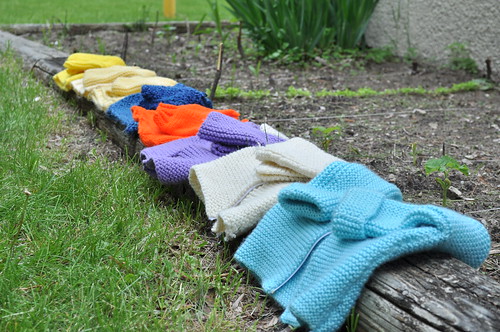A while ago, before I had my baby, I read books and articles, many to, I admit, validate my own preconceived, previously-held notions about how to raise our child. I take none of these as handbooks or guidebooks, whose rules and proclamations are to be followed strictly and without question. These are places for my ideas to take better shape, evolve, and develop into something more useful and complex. This is what good books do, and what good readers do with bad boks.
What’s been really interesting about reading through all these books on the same topic is that it’s starting to feel like a structured college course. None of these books stands completely alone, and none so far is utterly unique in its ideas. I’ve seen the same ideas (and sometimes even phrases) repeated in books in somewhat different contexts. Some of them contradict each other (For example, the Tiger Mom makes strong use of shame and guilt to motivate her daughters, while Madeline Levine strongly admonishes against the practice. For the record, the tiger cubs are well-adjusted, independent kids, despite the Tiger Mom’s failings or wrongdoings according to other experts and mothers.) and others fall into lockstep at some points.
The best example of this last point is where Teresa Strasser discusses the way her step-mother parented her and what the consequences of that parenting style were. It aligns almost exactly with what Marano says will happen when a parental figure shows little faith in their child by shaming, chastising, and over (negative) parenting: “I can’t stop trying to rub her cold, dead nose in her wrongness about me. It’s not a great raison d’etre, having to excel in the world because my evil step-monster said I couldn’t. It’s exhausting and often results in failures feeling bigger than they are, and achievements causing a brief high that fades, leaving nothing but a gaping hunger for shinier gold stars” (182).
This doesn’t fit exactly, but you get the point. And, to make my point clearer, it contradicts Chua: she shamed her kids into succeeding because she felt the needed the success or would be worthless and the kids (so far) are successful, this step mom just shamed her kid, and the kid is doing just fine. Marano would likely say all of these children are unlikely to succeed. They’re all fine.
Confessions of a Slacker Mom stood out to me in the online catalog of the local library precisely because even the title validates my current approach to parenting and childcare: Back. Off. She is no deadbeat mother by a long shot, rather, she is fully invested in her children and their happiness and successful outcome, whatever that may be, and to her, that is giving the children the space they need to grow up. She guides them, she doesn’t control them.
Most importantly, she does not sacrifice her life on the altar of motherhood. She takes time for herself, including her career, personal life, and marriage. She demonstrates to her children that adulthood is something to be desired, not dreaded or feared because it is the death of autonomy and fun. She makes clear she has worries, that maybe she could be doing more or less or different, but she moves forward with flexibility and an eye to what is best for her children, herself, and her family as a whole. I think Marano would love her.
As with my last “review”, here are a few of my favorite quotes:
“In fact, I’m more and more convinced that our kids may be quite a bit better off when they don’t have all the so-called advantages.” (14)
“But I think Aristotle’s point is still valid. That knowing how to read is of limited value until you understand the context of what you’re reading.” (74)
“…so often, in the case of bad conduct, there is a natural consequence we can let children suffer for themselves, so they can take away a memorable and meaningful reason to be good.” (104)
“Speaking of feeble and ineffective, I had to laugh when a friend of mine told me about a parenting class she took and the New Age-y advice they were dispensing, including that a parent should never use the word ‘no.’ They did furnish some watered-down euphemism for ‘no’ such as ‘That’s not okay! That’s not okay!'” (110)
In summary, I recommend this book both to people seeking their own validation and to those who think Ferro may be a terrible mother. It’s a great memoir of parenting, and she’s only just begun (her kids were quite young at the time of publication). I hope she writes a follow-up in a few years.




